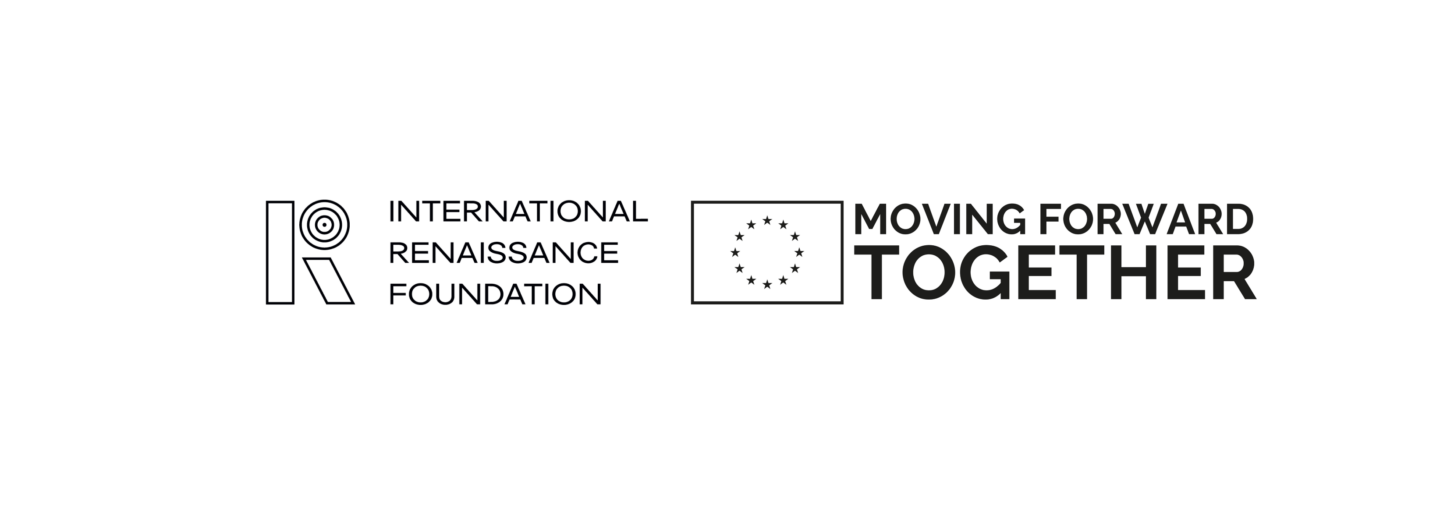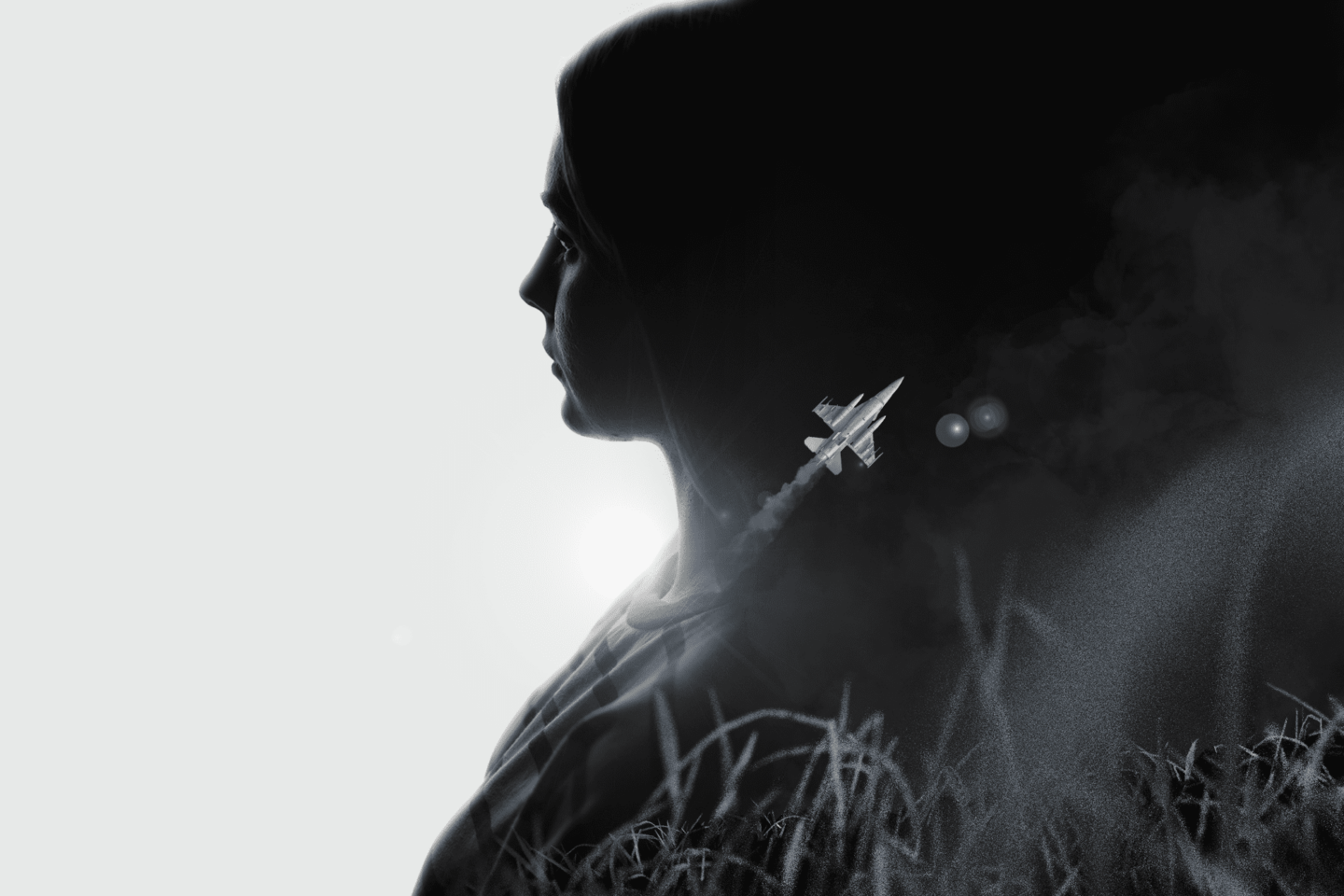“Whenever sociologists are being asked to describe how exactly did society change over the past decade, the first reaction is actually bafflement,” says Tymofii Brik, Rector of the Kyiv School of Economics. “That’s because sociologists study a myriad of parameters: from employment to mental health, from tobacco use to religious affiliation, from political views to pet ownership.” So, what criteria should be used for comparison?
In this joint project by Reporters and KSE, we’ve attempted to put together a collective image of Ukrainians. Taking into account sociological research, interviews of experts in various fields, and personal observations, the authors of the following pieces analyzed changes in Ukrainians over the past decade, that is, from 2014 to 2024. Changes in attitudes, values, preferences, ways to remember the past, and visions of building the future.
In the first part of the article, KSE Rector Tymofii Brik reflects on the paradoxical combination of phenomenal proactiveness and lack of social trust among Ukrainians.
The war has had a profound impact on Ukrainian society. According to experts in economics and demographics, even the structure of the population has changed. From the beginning of the war in 2014 until the full-scale invasion, out of the entirety of Ukraine’s population, approximately 2 million people were internally displaced persons (IDPs). Since the full-scale invasion, this number has increased, hovering at around 4 million. At the same time, approximately 6 million Ukrainians are in forced displacement abroad. This is a tremendous and dramatic change.
Obviously, Ukrainian society is losing resources and facing demographic problems. But what does this society feel and think? Reading up on sociology research on Ukraine in the 1990s and early 2000s results in a discouraging conclusion: our society was quite cynical and paternalistic, with little awareness of statehood identity and weak civil society. The war only brought on more negativity.
A study by economists Tom Coupé and Maksym Obrizan showed that in 2014-2015, Ukrainians living in regions closer to combat zones were less likely to describe themselves as happy (by 15-30% less than people in other regions). With the beginning of the full-scale invasion, society suffered even more trauma. In the first surveys conducted by the Institute of Sociology at the National Academy of Sciences of Ukraine, sociologists were able to contact the same responders they had polled before the invasion. This allowed them to compare responses before and after the invasion. In this dataset, the number of respondents who reported that their family members participate in the war or that they themselves directly help the army increased from 5% to 33%. Almost 84% indicated that they personally knew at least one person on the front lines, which was a striking difference between the year 2021 and the year 2022). Respondents began to mention stress more often; anxiety while alone increased from 10% to 33%. More people reported having nightmares about war—an increase from 4% to 34%.
And yet, there is an immediate, striking paradox. We know that Ukrainian society has a long history of a lack of social trust and civic participation; we also know of the complex challenges and trauma Ukrainians have been through. But at the same time, other polls show phenomenal proactiveness of Ukrainians. According to the Kyiv International Institute of Sociology (KIIS), in December of 2021, approximately 30% of Ukrainians trusted the President; since the beginning of the full-scale invasion, this share rose to 80% in 2022 and remained at 60% in 2023. Kateryna Zarembo has shown in her research that approximately 80% of Ukrainians consider themselves a part of civil society, and the majority of them define civil society through action and belonging to an important group in the community or a group of like-minded people who want to make a difference. Our research has shown that communities with higher income brackets and social capital were more resilient during the invasion. And regular monitoring by the Institute of Sociology at the National Academy of Sciences has shown that a significant number of Ukrainians—80% of respondents—declared their Ukrainian civic identity in the wake of the invasion.
So, how can all this be reconciled? On the one hand, we hear and read that Ukrainians are socially disoriented people without trust, existing in splintered communities unable to unite. On the other hand, the latest data shows a radically different picture: conscious citizens who trust institutions and work together to achieve victory. Is it a temporary illusion that will soon fade away? Or is it a new Ukraine? Or maybe Ukraine has always been like this—we just haven’t seen it because we’ve been looking in the wrong place? So many questions, so few answers.
What we can at least try to do is to figure out what has happened to our society over the past decade. The first step is to find reliable data for comparative analysis. In 2012, Ukraine took part in a large international project called the European Social Survey, which, among other things, studied the issue of values. This survey was based on the methodology for studying values developed by Shalom Schwartz. According to this methodology, values play an important role in people’s motivation. That is, individuals and societies will strive for something defined by values. And values can be sorted by priorities. That is, order, development, friendship, and job can simultaneously be important to any and every one of us. However, throughout life, we can assign different priority levels—focus on relationships in one season of life, and in another, consider our personal development. The values are myriad, but Schwartz proposed ten meta-values. Each of those can be subdivided into smaller ones. For example, “universalism” value encompasses understanding others, tolerance, and protection of the welfare of people and nature. And “power” includes social status, prestige, influence, and control over people and resources.
Our team, in collaboration with the Kyiv School of Economics and KIIS, conducted another survey using the same methodology ten years later, in 2022, a month before the full-scale invasion. Consequently, we can compare the profile of Ukrainians’ values in 2012 (on the eve of Euromaidan) and in 2022 (ten years have passed, the war is already ongoing, and people are either fearful or dismissive of the looming full-scale invasion).
Still, it’s obvious that priorities have hardly changed over this decade. In 2012, the most important values for Ukrainians were security (stability in their own lives), universalism (welfare and justice for others), and benevolence (well-being of loved ones, importance of relationships). And these remained the top three ten years later, in 2022. As such, it’s not surprising that Ukrainians are able to unite on a community level and defend themselves whenever a threat to security or justice arises.
What does come as a surprise is that Ukrainians were able to step outside their immediate circle and support not just their own but the entire country, as well as complete strangers—volunteers they haven’t met before but now regularly support by sending money for large-scale purchases and logistics.
The study also showed that over the past decade, Ukrainians have placed greater importance on self-realization values: freedom and independence in thoughts and actions and the right to choose. And this is vital for establishing democratic institutions. In contrast, the relative importance of achievements and power has decreased. That is, the majority of Ukrainians care less about their personal “success” than about solving social issues. This can become a great foundation for social engagement, activism, and volunteer work.
It’s still astonishing that Ukrainians were able to channel these values into tangible actions—working together with government, businessmen, and volunteers in times of war. Let’s assume we’ll readily care for others, but why would we do it together with authorities we haven’t trusted for years? The answer may lie in the success of certain reforms. Namely, those reforms that granted people greater agency and more opportunities to readily influence the politics and economy of their community.
Let’s take the decentralization reform as an example. Sociological surveys by KIIS, the Institute of Sociology at NAS Ukraine, the Life in Transition Survey, and many others have shown systemic improvements in Ukrainian’s level of trust in local authorities. According to the National Academy of Sciences of Ukraine, only about 15% of the population trusted local authorities before 2014, and after 2014, this figure doubled to 30%. We did a separate study based on data from the Life in Transition Survey. This dataset is unique because it involves the same people who have agreed to fill out sociological questionnaires over the course of a few years. Such studies are called longitudinal. As such, we can check for any changes in the life of a particular person—before and after decentralization. The study showed that trust in local authorities increased not by accident—it was linked to decentralization.
Thus, we see a gradual overlap of several layers: the importance of the values of security, welfare, and well-being has become the foundation for the expansion of civic identity (more and more people receive themselves as Ukrainians) and has coincided with the increase in trust in certain government institutions. Another important aspect is that Ukrainian society has managed to preserve the institutions of democracy. Despite the war, we have had a succession of presidents, parliaments, and administrations. We preserved religious diversity in the midst of public debates on switching to the Gregorian calendar for calculating dates of religious feasts and the transfer of churches from one patriarchate to another. Gradually, through legislation and public debate, quotas, and consumer protection (rather than through orders and repression), the Ukrainian language gained a greater presence in public space.
Ukrainian society has begun to value not only the abstract ideas of democracy but also specific ideas associated with it. For example, according to the abovementioned European Social Survey, in 2012, only 20% of respondents agreed with the statement “gays and lesbians should be allowed to live their lives as they see fit.” And in 2022, 42% of respondents—twice as many—agreed with it. So, in ten years, Ukrainians have become more open to the ideas of democracy and inclusion.
Of course, tectonic shifts in the framework of values and beliefs occur in war times. People are also traumatized by war, and that influences their relationships with themselves and others. It’s hard to predict the direction Ukrainian society will take, as it depends on security dynamics and our place in the politics of the EU and NATO. At least for now, researchers at the Institute of Sociology at the National Academy of Sciences Ukraine suggest that in wartime, political views shift to the right. In the latest poll by the IS NAS Ukraine, 19% of respondents identified as “nationalists,” while before the full-scale invasion, this figure was 3-4%.
So now we can say that over the past decade, Ukrainian society has maintained its core values, prioritizing security, stability, welfare, and the well-being of others. But these values are now enveloped in new national identities. Ukrainians not only value their country but also begin to favor distinct cultural practices and speak more Ukrainian at home, at work, and online. At the same time, Ukrainians are still trying to find out who they are in the political domain. Concurrently, there is a shift toward nationalism (with greater value attached to the ideas of democracy) and the adoption of EU values, including tolerance for LGBTQ+ individuals.
Looks like Ukrainians are taking a crash course on political culture, quickly mastering major political ideas coming out of Europe in recent decades. Relations with the government also seem to be improving, primarily due to sustained trust in local authorities and fluctuating trust in the national government. All this translates into the establishment of a new political nation, but it does not eliminate the risk of a rollback to previous trends (our history marks the loss of trust after the Orange Revolution). Nor do values of security guarantee respect and favor for democracy. In a long war, people who prioritize security can easily change their political views favoring authoritarianism. So, right now, it’s hard to predict the future of Ukrainian society. We can only hope that in another decade, then-sociologists will write that we have passed these tests and preserved both the institutions and political culture of democracy.
Translation — Marichka Androshchuk
§§§
[The translation of this publication was compiled with the support of the European Union and the International Renaissance Foundation within the framework “European Renaissance of Ukraine” project. Its content is the exclusive responsibility of the authors and does not necessarily reflect the views of the European Union and the International Renaissance Foundation]





